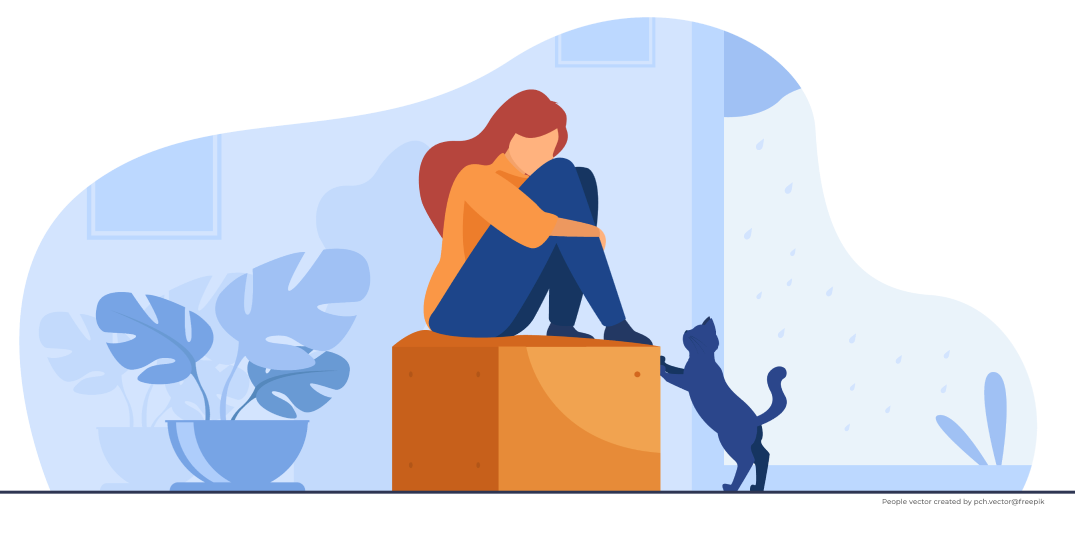
Depression
Depression is a “mood disorder” that negatively impacts your emotional state. It causes feelings of sadness and a loss of interest in things you used to previously enjoy.
Making one vulnerable to a host of psychological and physical problems, depression significantly reduces our ability to function effectively in our professional and personal lives.
A person suffering from depression may find it difficult to engage in some of the simplest tasks that are part of their everyday lives.
Anxiety
The American Psychological Association defines anxiety as “an emotion characterized by feelings of tension, worried thoughts and physical changes like increased blood pressure.”
An anxiety disorder negatively impacts a person’s ability to function normally. Such a person may constantly worry about the future.
People with anxiety tend to avoid situations or places that make them anxious, which serves only to provide temporary relief since their brains begin to associate those situations and places with fear.
Common Symptoms of Depression
- Feelings of sadness
- A lack of motivation and interest
- Increased or decreased appetite
- Insomnia/Hypersomnia
- Negative thinking patterns
- Low energy levels and fatigue
- Feelings of guilt
- Impaired concentration
- Low self-esteem
Common Symptoms of Anxiety
- Constant worry and/or fear
- Restlessness
- Nervousness
- Easily fatigued
- Impaired concentration
- Irritability
- Sleep disturbance
- Excessive sweating
- Muscle tension.
- Heart palpitations
Although depression and anxiety are two independent medical conditions, their symptoms, causes, and treatments often overlap. Generally, a lot of people struggle to distinguish one from the other.
That’s because many people with anxiety also develop depression and vice versa. There is a neurochemical link between both disorders and both are linked to low levels of serotonin and dopamine in the brain.
Key Differences
Despite some of the overlap in symptoms of depression and anxiety, there are some notable differences.
People with anxiety tend to be more tense because they struggle to control their racing thoughts. While people who are depressed usually move slowly, with their reactions appearing flat or dull.
People experiencing anxiety tend to worry about the future, while people experiencing depression are less likely to worry about upcoming events.
Depressed individuals tend to believe that their present situation will not change and hence project their future based on their present level of well-being
How to identify your condition?
While you may experience multiple symptoms of depression and/or anxiety, you need a healthcare professional to properly diagnose your situation.
An appointment with a professional therapist will give you a good idea of what’s really happening.
It will also serve as a guarantee to yourself that you are getting the health care you need, should you need it.
MindNest is dedicated to providing high-quality, accessible treatment and medication management online. Our care managers work with patients to design care that meets their specific needs.
Our fully virtual process means patients never need to leave their homes. Find out how the Mindnest approach compares to in-person psychiatry.

 No image Available
No image Available